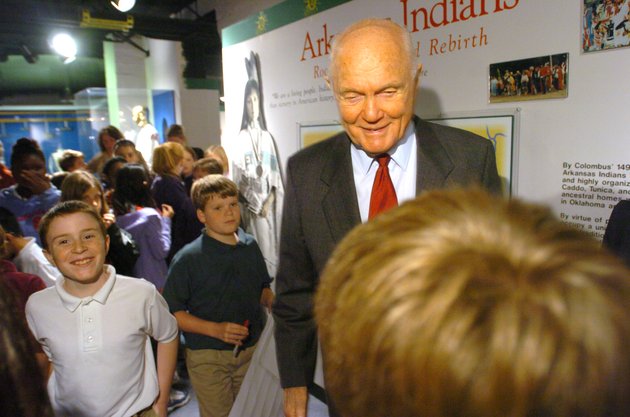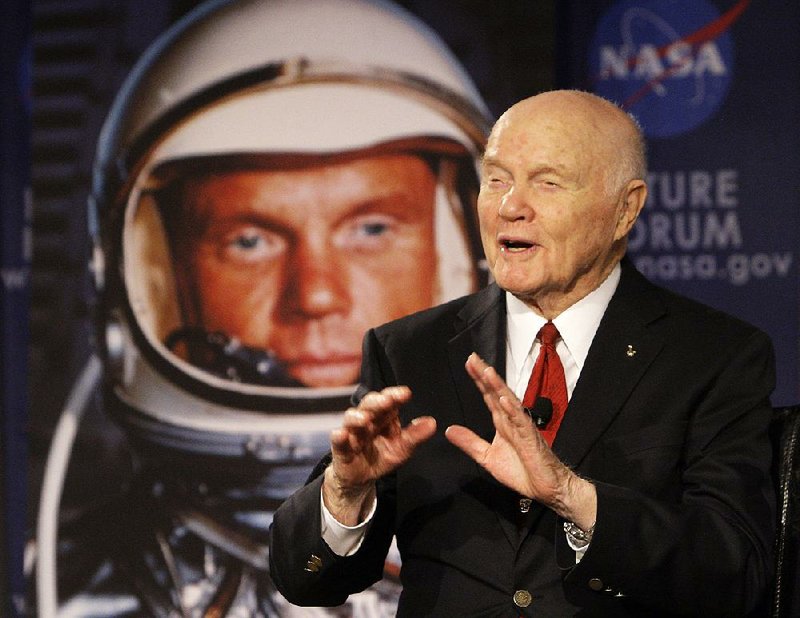WASHINGTON — John Glenn, whose 1962 flight as the first U.S. astronaut to orbit the Earth made him an all-American hero and propelled him to a long career in the U.S. Senate, died Thursday. The last survivor of the original Mercury 7 astronauts was 95.
Glenn died at the James Cancer Hospital in Columbus, Ohio, where he was hospitalized for more than a week, said Hank Wilson, communications director for the John Glenn School of Public Affairs.
John Herschel Glenn Jr. had two major career paths that often intersected: flying and politics.
Before he gained fame orbiting the world, he was a fighter pilot in two wars, and as a test pilot, he set a transcontinental speed record. He later served 24 years in the Senate from Ohio. A rare setback was a failed 1984 run for the Democratic presidential nomination.
His long political career enabled him to return to space in the shuttle Discovery at age 77 in 1998, a cosmic victory lap that he relished and turned into a teachable moment about growing old. He holds the record for the oldest person in space.

John Glenn in Arkansas: 2004 visit to Museum of Discovery
COLONEL GLENN ROAD: How a Little Rock road came to be named after astronaut John Glenn
[JOHN GLENN IN ARKANSAS: Coverage of 2004 visit to Museum of Discovery]
More than anything, John Glenn was the ultimate and uniquely American space hero: a combat veteran with an easy smile, a strong marriage of 70 years and nerves of steel. Schools, a space center and the Columbus airport were named after him.
The Soviet Union leaped ahead in space exploration by putting the Sputnik 1 satellite in orbit in 1957, and then launched the first man in space, cosmonaut Yuri Gagarin, in a 108-minute orbital flight on April 12, 1961. After a two suborbital flights by Alan Shepard Jr. and Gus Grissom, it was up to Glenn to be the first American to orbit the Earth.
"Godspeed, John Glenn," fellow astronaut Scott Carpenter radioed just before Glenn thundered off a Cape Canaveral launch pad, now a National Historic Landmark, to a place America had never been. At the time of that Feb. 20, 1962, flight, Glenn was 40 years old.
With the all-business phrase, "Roger, the clock is operating, we're underway," Glenn radioed to Earth as he started his 4 hours, 55 minutes and 23 seconds in space. Years later, he explained he said that because he didn't feel like he had lifted off and it was the only way he knew he had launched.
Read Friday's Arkansas Democrat-Gazette for full details.

